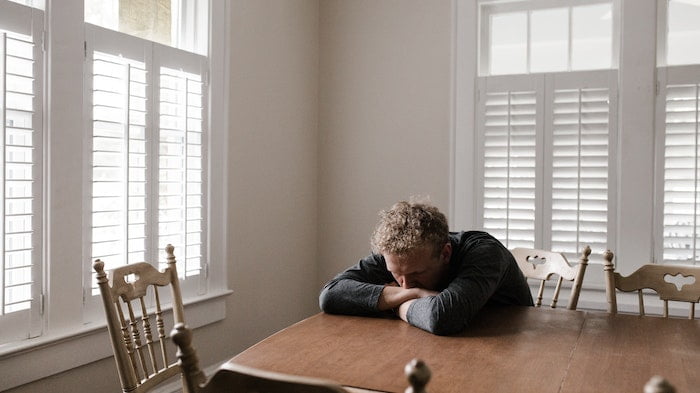How To Stay Sober After Addiction Treatment
Recovering from a drug or alcohol addiction is a long journey, and you will need to prioritise your sobriety for the rest of your life.
It can sometimes seem impossible to stay sober after addiction treatment, but there are many strategies and tips that you can learn to make the process feel more manageable.
Understanding the benefits of sobriety, helpful ways to avoid drug or alcohol use and what to do if you relapse can all help you to stay sober after addiction treatment.
What is sobriety?

When many people think about being sober, they usually associate this word with the act of not using drugs or alcohol.
While this is partly true, sobriety involves a lot more than this.
Simply refraining from substance use is known as abstinence. So what exactly is sobriety?
It can be easy to think that you are fully recovered if you no longer use drugs or alcohol, but this is not necessarily the case.
True recovery and sobriety come when you continue to work on yourself and overcome the underlying factors that led to your addiction.
This may involve receiving treatment for a mental health disorder, learning how to cope with stress in healthier ways, or getting addiction counselling and other therapy to deal with past trauma.
While being abstinent from drugs and alcohol is an extremely important step on the path to recovery, sobriety involves much more inner work and is a long-term process lasting many years.
What are the benefits of sobriety?

Choosing to stop using drugs or alcohol will have a huge impact on your life, particularly when you are coming from a background of addiction.
There are many benefits to sobriety and abstaining from drugs and alcohol, and in many cases choosing to recover from addiction can quite literally save your life.
Some of the benefits of sobriety include:
- Your physical health will improve
- You can begin treating any underlying mental health disorders
- Your relationships with friends and family members can improve
- You will save money
- You will sleep better
- You can prioritise the important things in life
- You will feel better about yourself and your decisions
- It can save your life
You may be feeling motivated and ready to start your sobriety journey once you leave rehab, but it’s important to find ways to continue this behaviour even after the initial surge of motivation.
Learn about your triggers

One of the most important things you will learn during your time in addiction treatment is how to identify and manage your triggers.
A trigger is an event, person, place, memory, sound or smell that you associate with substance use and that can make you want to use drugs or alcohol.
Some people are triggered by walking past their old favourite pub, for example. If you are aware of this, you can take a different route to avoid the trigger.
Knowing what triggers you suffer from can help you find healthy ways to manage them and avoid them if possible.
Continue regular counselling

For many people, rehab is their first experience with therapy and addiction counselling.
Most treatment programmes offer a minimum of three weeks of counselling with a qualified therapist, which can be a great start.
But the most effective therapy builds on a relationship with your counsellor for months or even years, and this is where some of the most important work happens.
Once you leave rehab, consider finding a private or NHS-funded therapist to continue what you started during addiction treatment.
Regular therapy sessions can become a healthy routine, and having someone objective to speak to about your thoughts and feelings can help you to stay sober after rehab.
Get involved in support groups and aftercare activities

You do not have to struggle alone after addiction treatment.
No matter where you live, you will find some form of aftercare or support group.
Most towns and cities have a branch of Alcoholics Anonymous or Narcotics Anonymous, and if you are unable to attend in-person then you will usually be able to attend online.
You can also find a sponsor to support you and help you stay on track, and your rehab clinic may have an alumni programme for previous clients to remain in touch and get involved in activities together.
Finding support after rehab is crucial to remaining sober and building lasting connections.
Build a support network

Feelings of loneliness and isolation are often reported by people who have completed addiction treatment, and if the situation is not addressed it can lead to a higher chance of relapse.
Having a group of people around you who check in on you, care about you and want the best for you can make all the difference.
But how can you find these people?
As we mentioned above, joining local support groups and getting involved in aftercare activities can be a great way to meet people who share similar sobriety goals.
Make it a priority to get to know other people in recovery and form healthy, platonic friendships with them. They are likely to understand what you are going through and will be able to provide support, and you will also be able to return the favour.
Lower your stress levels

One of the most common causes of relapse is excess stress, something that we all deal with from time to time.
You may have learned healthy ways of dealing with stress without reaching for substances, and this is an extremely effective and helpful skill to have.
However, taking the necessary steps to lower your stress levels and remove unnecessary stress can also make a real difference.
If your job is causing you chronic and ongoing stress, for example, consider switching careers or finding a new job. After all, no employment is worth risking your physical and mental health.
You can also look into ways to lower your stress levels, such as spending more time in nature or treating yourself to a regular massage.
Check-in with yourself regularly

A common cause of relapse is simply not meeting your most basic needs.
When we become vulnerable in any way, whether physically, mentally or emotionally, we are at a higher risk of relapsing.
One of the easiest ways to remember to check in with yourself regularly is to think ‘HALT.’
This stands for Hungry, Angry, Lonely and Tired – four basic human sensations that we all experience at some point in our lives.
Asking yourself, ‘Am I feeling hungry, angry, lonely or tired? How can I fix this?’ on a regular basis can help to you avoid falling into a vulnerable place and putting yourself at higher risk of relapse.
Remove all substances from your home

If you are easily able to access drugs or alcohol in your own home, you may find the temptation difficult to resist – particularly during a vulnerable moment.
Before you return home from rehab, ask someone you trust to go through your home and remove all traces of substances.
This includes reminders of substance use such as empty bottles, drug paraphernalia and advertising flyers from local alcohol shops.
If you live with someone who uses drugs or alcohol, you will need to think about changing your living environment to better suit your needs.
You will have a much greater chance of long-term recovery if you keep your home free of all addictive substances.
Replace old behaviours

It’s likely that substance used once played a large role in your life. You may have spent a lot of time thinking about it, obtaining substances, using substances and recovering from substance use.
Now that you have decided to change your behaviour, you may find a hole in your life where substance use once was.
To break a destructive cycle, it’s important to replace the unhealthy behaviour with a new, healthier behaviour. This prevents you from becoming bored and reverting back to substance use.
Try finding a new hobby or activity that you enjoy such as writing, reading, knitting or sports.
Using the time that you once spent on substances to engage in something that brings you joy can help you to stay sober after addiction treatment.
Take it one day at a time

One of the biggest mistakes you can make while in recovery is thinking too far into the future.
Addiction recovery is a long-term process which can take many months or even years.
It’s easy to feel discouraged when you think about how much work is left to do, and this can cause many people to give up before they’ve even started.
Trying to stay sober for the rest of your life can seem like an impossible challenge.
Not using drugs or alcohol for one day, one hour, or even one minute probably seems doable.
Take your recovery one day at a time. When you wake up in the morning, focus on the fact that you need to remain sober for this one day.
Don’t think about the other days waiting for you in the future – just focus on this one day and what you can do to get through it without using substances.
Make necessary changes

One of the most difficult aspects of recovering from an addiction is identifying any negative influences in your life and making the necessary changes.
This may include painful decisions such as finding a new group of friends, moving away from an area that you have lived in your entire life or leaving a partner who encourages substance use.
While these actions may be difficult at the time, you can take comfort in the fact that you are setting yourself up for success and pulling yourself out of the addiction cycle.
Over time you will build a new, healthy lifestyle that you can be proud of.
Recognise the warning signs

It’s rare to suddenly relapse without warning. In most cases, there are several signs that indicate when you are on the path to a potential relapse.
Learning to recognise these warning signs can help you to seek help early and avoid reverting back to drug or alcohol use.
- Some of the most common relapse warning signs include
- Feeling overconfident in your ability to remain sober
- Withdrawing from friends and family
- Looking back on the past with rose-tinted glasses
- Spending time with former substance-using friends and family
- Not taking care of yourself
If you notice any of these signs within yourself, speak to a counsellor or one our experts as soon as possible.
Schedule your days

You are more likely to relapse if you allow yourself to drift through your days without a proper routine or schedule to live by.
You don’t need to live your life with military-style precision, but small things like waking up at the same time each day and attending a regular job can help to keep you on track and prevent you from falling back into substance use.
It can also be helpful to schedule therapy appointments each week, as this gives you something to work towards.
Take care of yourself

It’s easy to forget just how much a little self-care can help to boost your mood and keep you on a healthy path.
Focusing on the basics such as a healthy diet and a good sleep routine can do wonders for your physical and mental health, helping you to feel capable and motivated to continue your recovery.
This can be as simple as drinking enough water throughout the day, getting 7-8 hours of sleep, eating a varied and nutritious diet, going to sleep and waking up at the same time each day and exercising regularly.
Make sure to shower and brush your teeth every day, get as much sunlight and fresh air as possible and limit your screen time for the best self-care results.
These seemingly small actions can be the difference between long-term recovery and relapse, so don’t discount them.
Celebrate milestones

Celebrating your victories and small wins on a regular basis can help to keep you feeling positive and motivated throughout your recovery journey.
Did you stay sober for a full day? Celebrate! Did you walk past your favourite pub and refrain from going inside? Celebrate! Did you successfully identify a new trigger? Celebrate!
Involve your friends and family to share in these milestone celebrations too – seeing your progress will lift their spirits, and their support will encourage you to keep pushing through addiction recovery.
Navigating and recovering from a relapse

What is a relapse?
If you have been attempting to remain sober but fall back into using drugs or alcohol, this is known as a relapse.
It can be very disheartening to experience a relapse, but it doesn’t have to mean the end of your recovery journey.
Instead, try to view a relapse as a sign that you need to make some changes to your recovery plan.
What are the factors that led to you using drugs or alcohol again? How can you avoid relapsing next time?
The most important thing to remember is to never give up. Accept what has happened, learn from it and keep going.
How common is relapsing after addiction treatment?
You may be surprised to learn just how common it is to relapse after addiction treatment.
Some studies say that up to 90% of people with an alcohol addiction will relapse within four years of sobriety, while others point to between 40% and 60% of people who receive treatment for addiction.
Experiencing a relapse is not a sign that your addiction treatment didn’t work.
A drug or alcohol addiction is a disease that is extremely difficult to recover from, and a relapse can be part of that recovery journey.
Understanding why you relapsed, which factors contributed to the relapse and how to recover effectively can help prevent you from repeating the cycle in the future.
How can I recover from a relapse?

You may feel completely defeated after experiencing a relapse but it is possible to recover, turn this situation around and use it as a learning opportunity.
The first thing you will need to do is to let your doctor and/or medical team know that you have experienced a relapse – they will be able to advise you on the next steps to take.
You will also need to stop drinking or using drugs as soon as possible.
You may need to attend an outpatient programme to detox, or undergo a supervised home detox.
It’s important that you find support from those who understand and care – attend a local support group meeting, speak to your counsellor and share your thoughts with a trusted friend or family member.
Continue working to identify what triggered the relapse and how to manage this in a healthy way next time.
You may also want to revisit your relapse prevention plan and find ways to improve it with this new knowledge and experience.
By reaching out to others and also looking inwardly at your own actions, you will be better prepared next time and will be less likely to experience a relapse.
For continued support in staying sober after your addiction treatment, talk to our expert team today on 0800 088 66 86.




